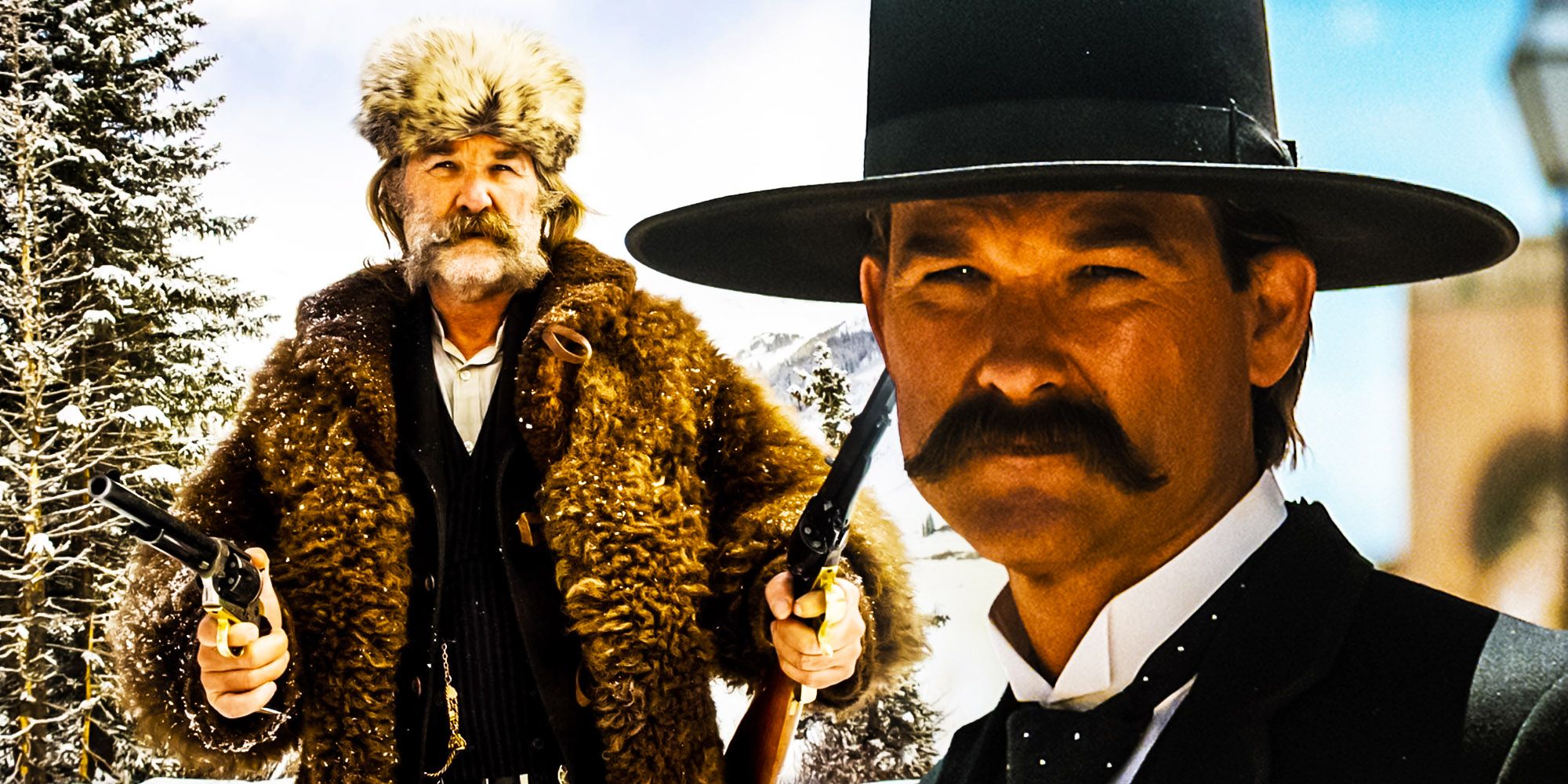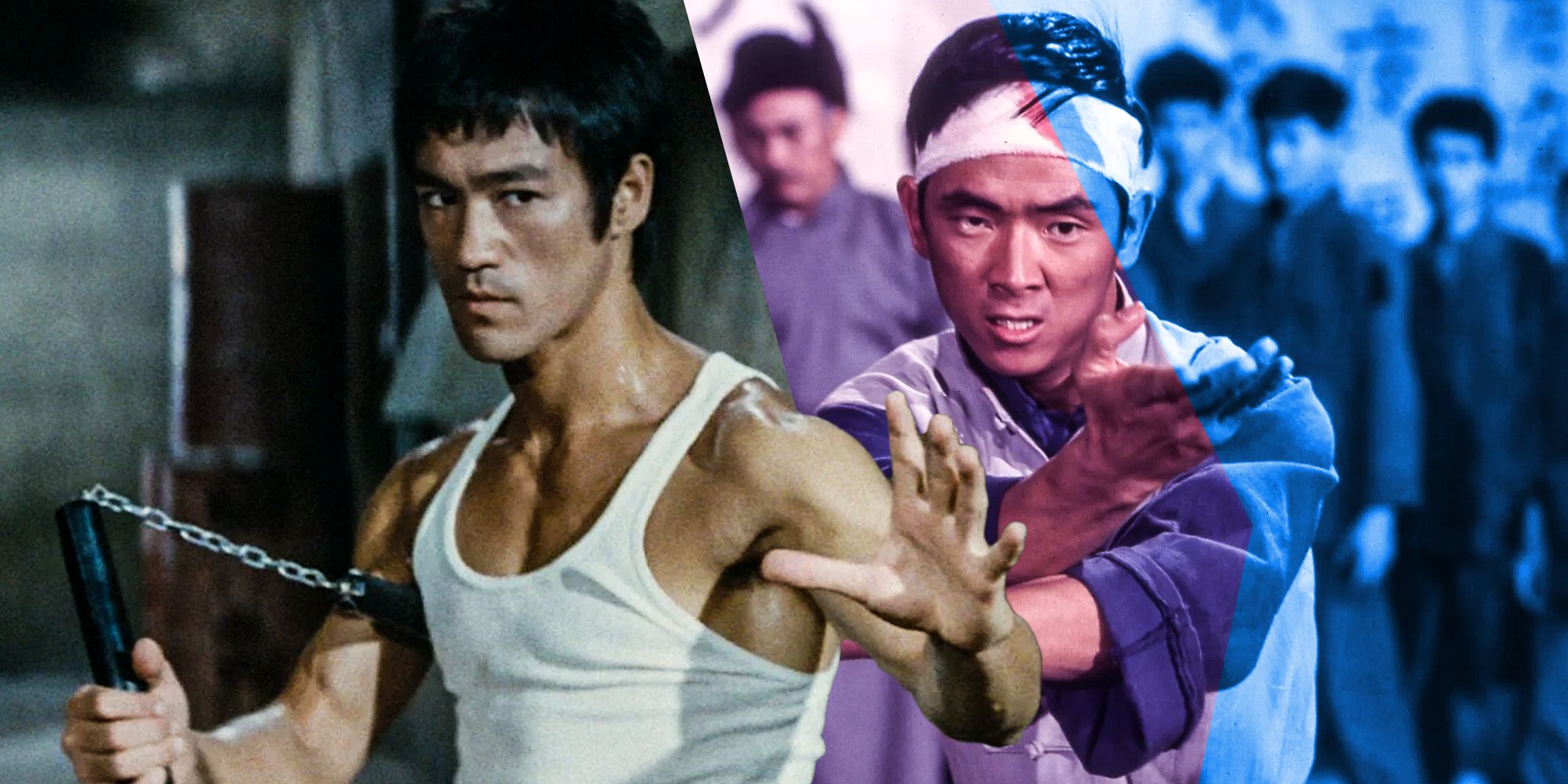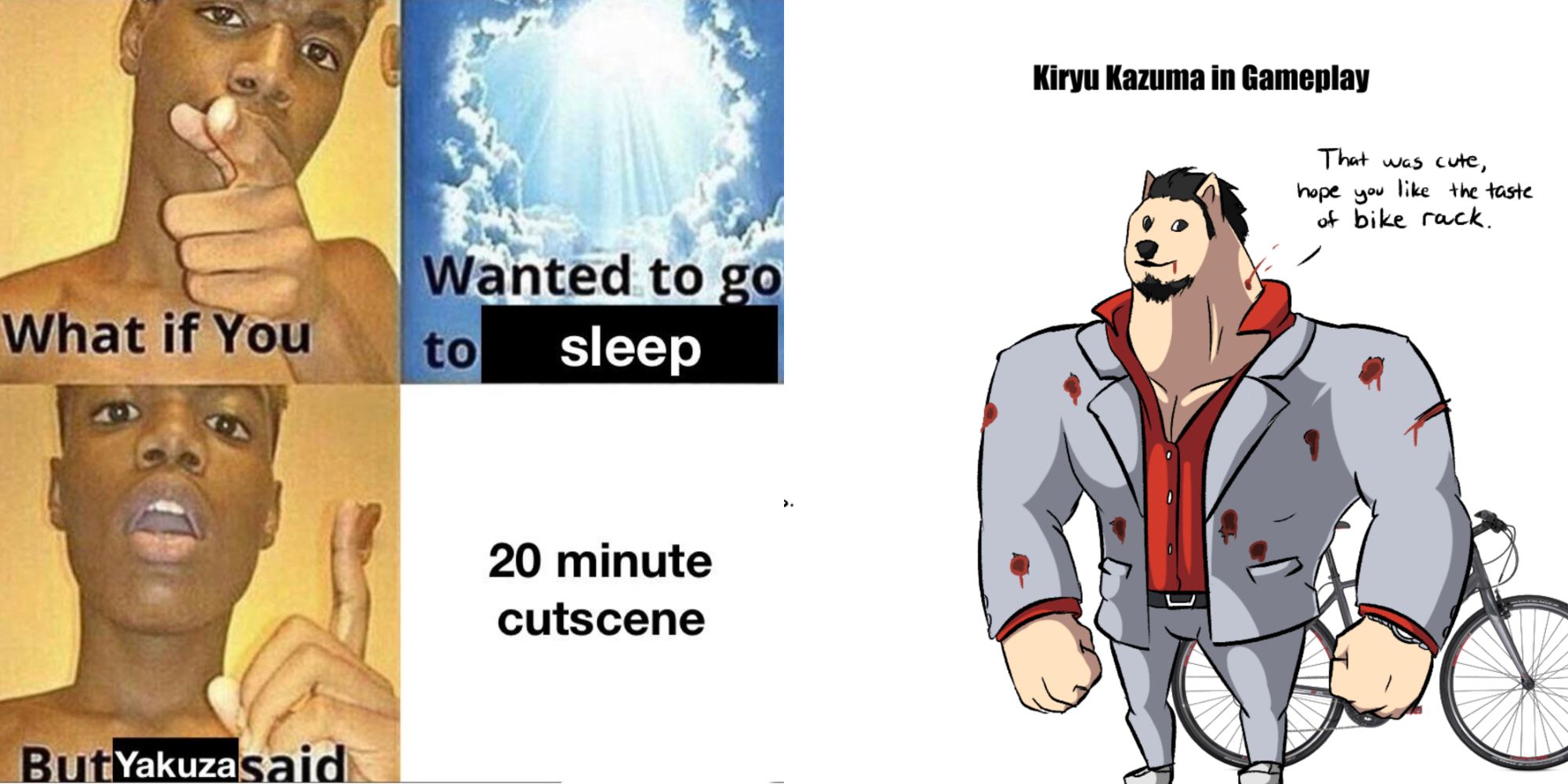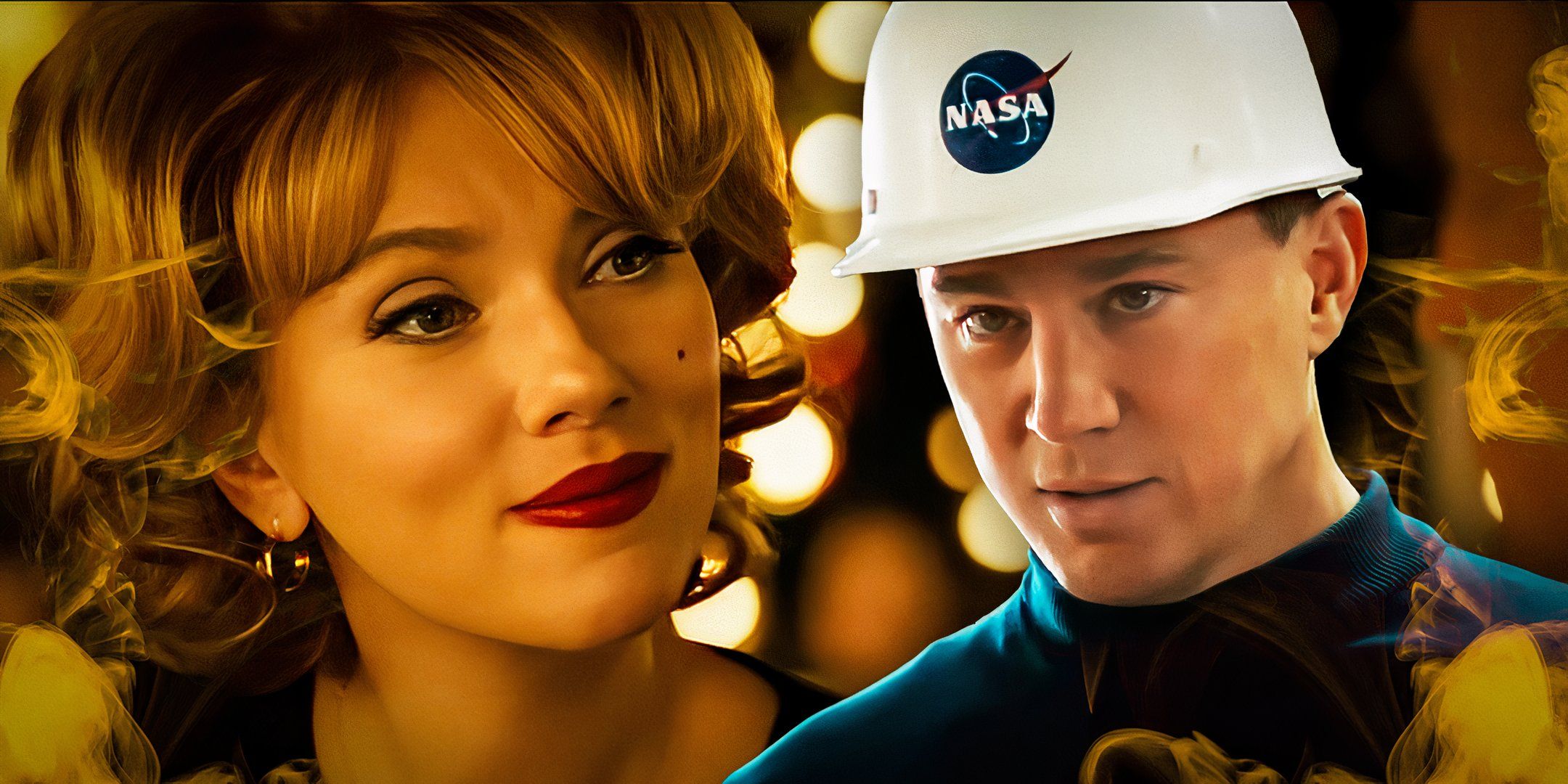Warning: spoilers for Daredevil #28 are ahead.
Few things matter more to Marvel’s Daredevil than faith and justice. Known as the lawyer Matt Murdock by day and an acrobatic vigilante by night, Daredevil has always been at the crossroads between what is legally just and what is morally right. His Catholic faith brings an added element to his moral code as he tries his hardest to do the right thing, even when circumstances make it difficult for him. Between his activities as a lawyer and as a superhero, Matt Murdock has a front row seat to the inner workings of the criminal justice system.
Daredevil’s proximity to justice and the justice system makes for a tenuous relationship between his day job and superhero persona, which is effectively captured in Daredevil #28 (written by Chip Zdarsky, art by Marco Checchetto, colors by Marcio Menyz, and letters by VC’s Clayton Cowles). Following the Man Without Fear in prison after he electrocuted himself to fight off Knull in King in Black, Daredevil needs psychological help. A psychotherapist in the prison named Dr. Hayes tries to help him work through his underlying issues, but is unable to get past his declarations that everything is fine. But once a fellow inmate who was prosecuted by Matt Murdock commits suicide, Daredevil’s faith in the justice system crumbles, finally allowing him to acknowledge that both the system and himself need help.
As a character, Daredevil possesses a level of self-flagellation that often does more harm than good. In a city bogged down by inequality and amoral behavior, he believes that holding everyone, including himself, to the same standard of justice is the only way that he is going to make a difference as a superhero. This is why he first volunteered to go to jail for his crimes, seeing it as an opportunity for him to do penance for killing a man. But there is a dark side to this, as it prevents him from addressing his own psychological troubles that stem from the harrowing experiences he has lived through. To him, Daredevil does not need help if the system he seeks to defend is in functional shape.
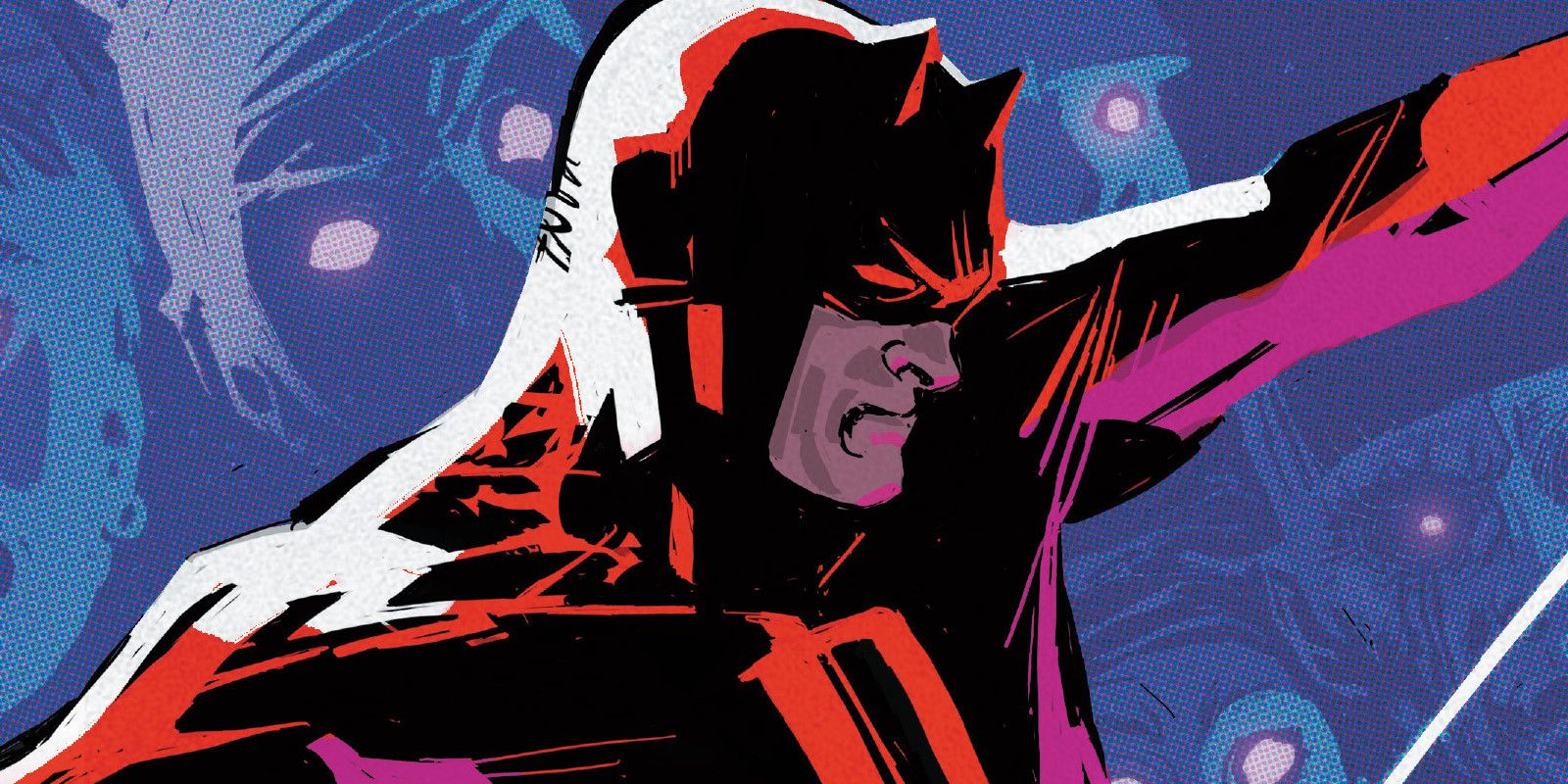
What this issue reinforces about Daredevil is that his psychological wellbeing is defined by a belief that the justice system is fair. Once his eyes are opened to its troubling reality after hearing the news of the inmate’s suicide, it shatters the illusion of justice that he has dedicated himself to defending as both Matt Murdock and Daredevil. Coming to terms with the role that Matt Murdock and Daredevil have played in continuing a cycle of suffering in the justice system is the only way that he is going to move forward as a hero. In order for him to become the hero he wishes to be, Daredevil needs to lose faith in both the lawyer Matt Murdock, as well as the broader system he is caught up in as a vigilante. Ultimately, Daredevil’s unwavering faith in the justice system helps no one, not even himself, because he is unable to recognize when he psychologically hurt.
Daredevil’s Self-Alignment With The Justice System Is Toxic.
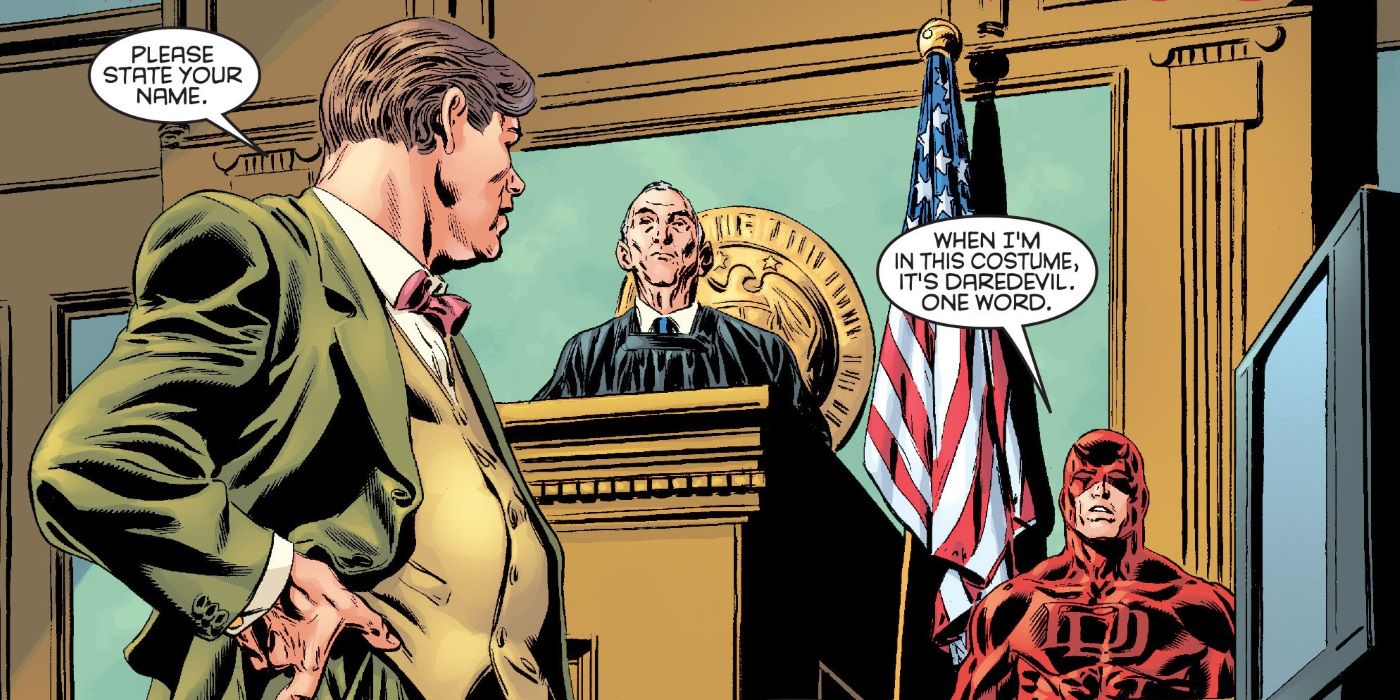
Daredevil’s hope for creating a more equitable society through his actions as Matt Murdock and his superhero persona is quixotic. His intentions are in the right place, but his crusade is ultimately out of touch with the reality of crime in New York. While he is certainly aware of how social inequality can lead people to lives of crime, the physical fighting he partakes in as Daredevil does little to actually alleviate the underlying causes. This makes his intense belief in the fairness of the justice system even worse for him, because he genuinely believes that things can get better if he tries a little harder.
The mechanics of Daredevil’s loss of faith in Matt Murdock can be seen in his belief in the justice system. In the first half of the issue, Dr. Hayes is unable to get through to Daredevil, even after pointing out, “You’re in prison, wearing a mask, I’m supposed to call you ‘Daredevil’… and you were possessed by an alien that you removed by electrocuting yourself in an electric chair. I’d hardly call that fine.” Her words are met with Daredevil insisting that everything is fine for him, and this is because he still has faith in the justice system. This evidences how Matt is complicit in his own self-dehumanization because he believes that he belongs in prison for his actions, saying, “…I live in a world of laws. And I broke them. I’m not above this.”
Of course, Matt is not “fine.” In his mind, as long as the system is in working order, then so is Daredevil. But the reality is that the system was never in working order to begin with. Dr. Hayes calls him, “an inequality tourist under the cover that [he] want[s] to be treated equally,” reflecting his poor understanding of how people end up in prison to begin with. And as he discovers later on in the issue, this comes at great psychological cost for him.
Daredevil’s Loss Of Faith Is A New Start For The Hero.
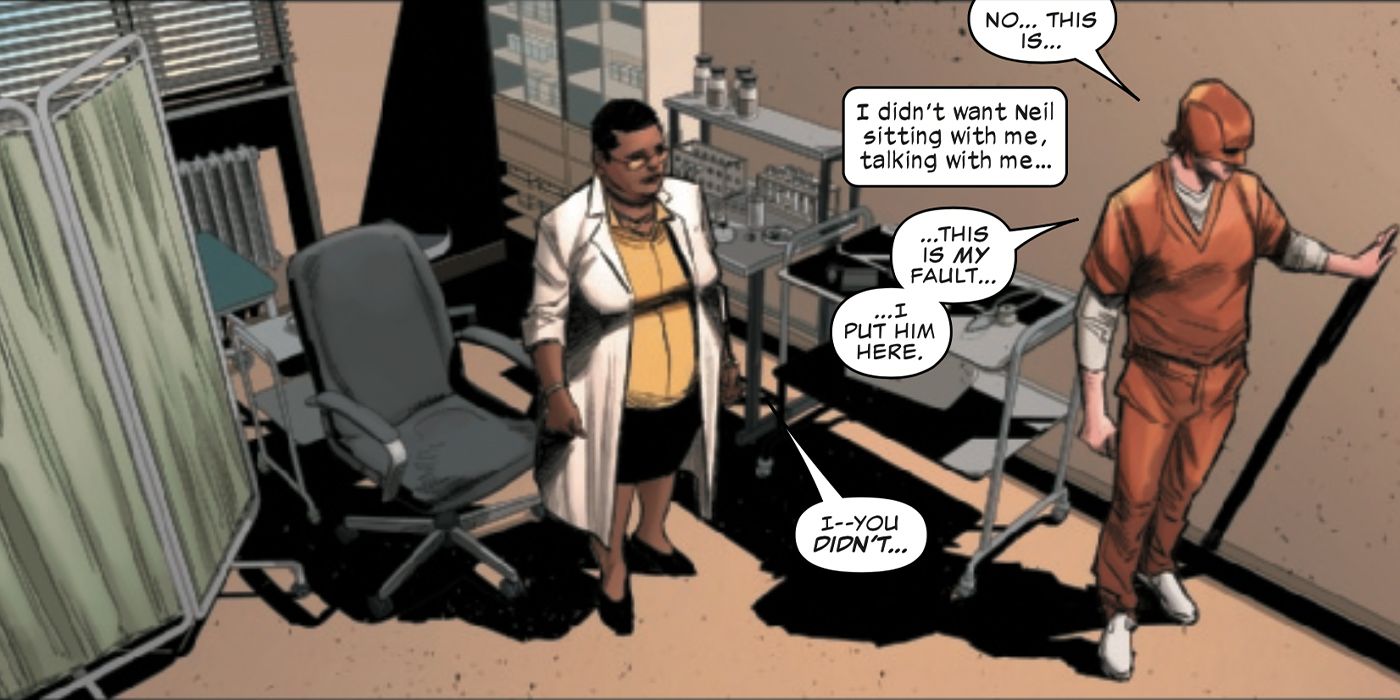
Hearing the news of the inmate’s death causes Daredevil to spiral, making him emotionally break down in Dr. Hayes’s office. Finally, he admits that he is not okay to Dr. Hayes. Waking up to the role he played as a prosecutor to the suffering felt by inmates in prison removes him from the state of denial he was in about his own mental health. To admit that he needs help is to also admit that the system itself needs rethinking.
Related: Marvel’s Outlawed Is About Superhero Trauma, Not Civil War
Atoning for his past sins as a prosecutor provides both Daredevil and Matt Murdock with a fresh opportunity to consider what his role in the criminal justice system should be. But more than that, it also provides him with the clarity to see how destructive his identification with the justice system actually is. His time in prison has given him an unprecedented look at the human cost of the system, represented in the inmate’s death as well as his own emotional turmoil that he was in denial of. Daredevil’s longevity as a hero rests in how well he can take care of both himself and people caught up in social inequality, and this issue shows that he has taken the first step in the right direction.
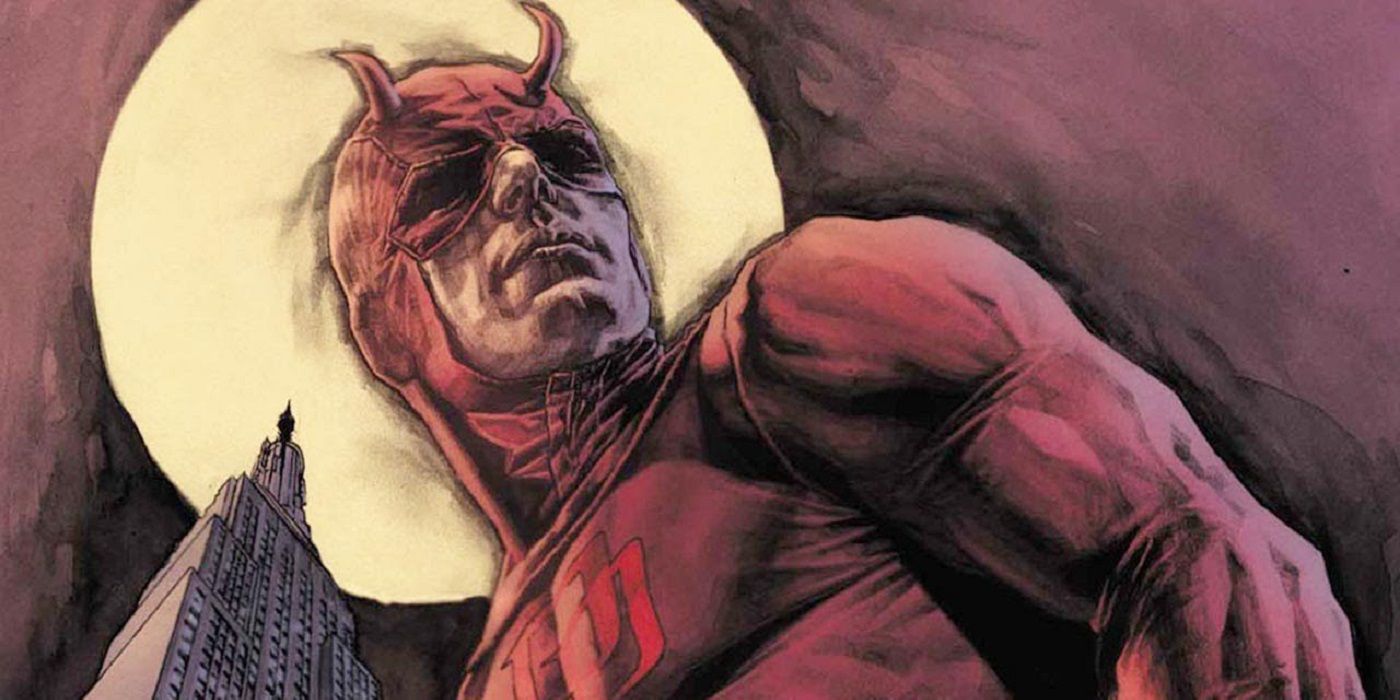
Matt Murdock undoubtedly cares a lot about protecting his city, which is the reason why he became Daredevil in the first place. His minimizing his psychological struggles in this issue points to a pressure he has internalized as a hero, one where he must be sound in both mind and body in order to do his job properly. The breakdown that he experiences in this issue is for the best, because it paves the way for him to finally reflect on how Daredevil is an imperfect part in an already unequal system that is predicated on equality. By taking a step back and examining the broken elements of the system, Daredevil has the opportunity to think on what his priorities truly are as the Devil of Hell’s Kitchen.
As a whole, Chip Zdarsky’s run on Daredevil has shown a hero caught in a bitter struggle between his moral codes and the reality he lives in. This issue is certainly no exception, and it seems that Daredevil has now reached a breaking point where he can no longer ignore the impractical aspects of both of his jobs. With the fate of Matt Murdock left open-ended at the end of the issue, the future of Daredevil looks dark.
